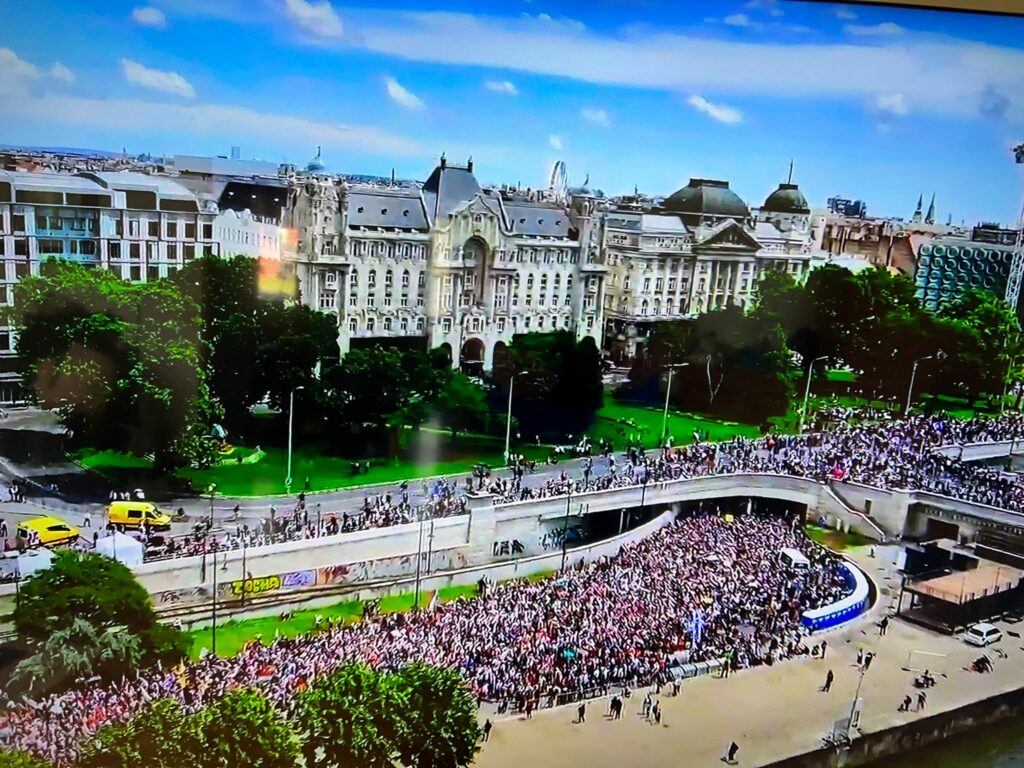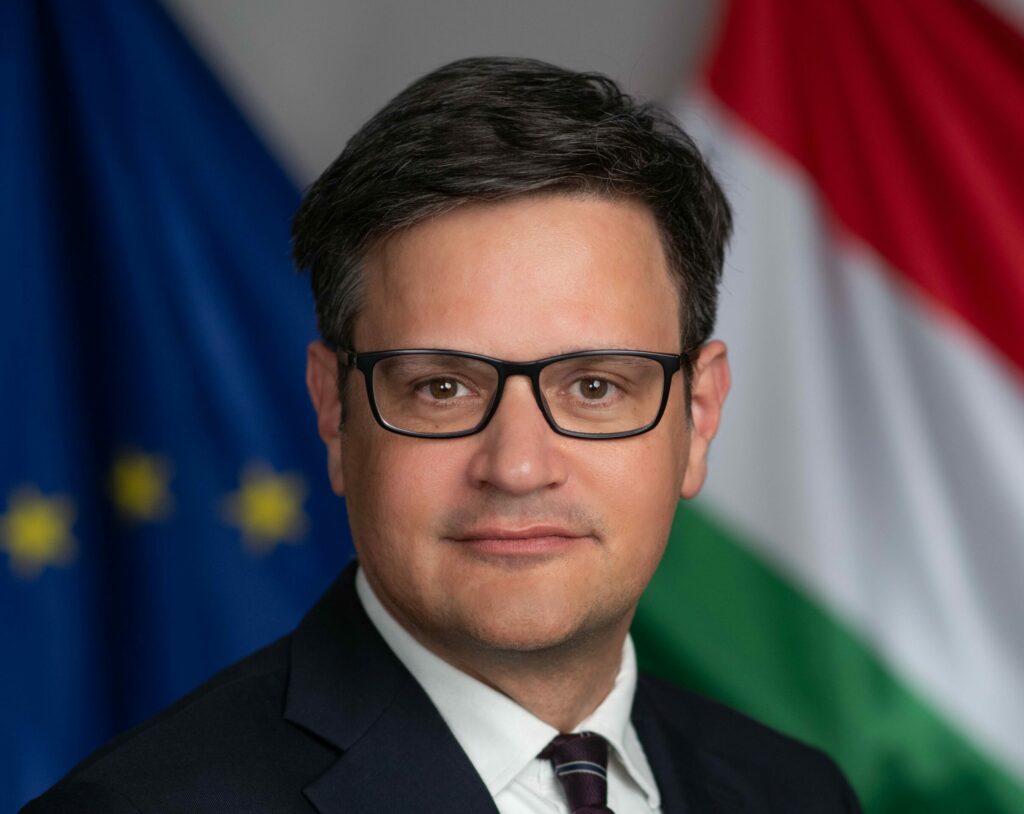Hungary will assume the rotating EU Presidency from Belgium on 1 July and chair it until 31 December 2024 when it will hand it over to Poland. During this six-month period, the country will lead the work of the Council of the European Union, building co-operation and agreement between the member states.
Hungary will hold the presidency of the Council of the European Union for the second time. The EU Presidency rotates among the 27 EU member states every six months. The country holding the presidency guides the work of the Council, organises and chairs meetings, and represents all member states in negotiations with other EU institutions.
The Council of the European Union is not to be confused with the European Council which is made up of the heads of state or government of all EU countries and defines the EU’s overall political direction and priorities.
As previously reported, the Hungarian Presidency programme was presented at a press conference in Budapest last Wednesday by János Bóka, Minister of EU Affairs, and Zoltán Kovács, Government Commissioner for the Hungarian presidency. Like other EU member states chairing the EU Presidency, Hungary has chosen a motto and logo but not tried to summarize its priorities in a few key concepts.
“Make Europe Great Again” will be the motto of the Hungarian EU Presidency. It is reminiscent of former American president Trump’s motto for the US. According to János Bóka, the motto refers to both an active and proactive Presidency and to the fact that member states are stronger together than apart. It also symbolises the perception that Europe can become an independent global player.
The choice of logo, the famous Rubik’s cube, refers to Hungarian ingenuity and problem-solving skills, as well as the complexity of European affairs. The Cube is made up of 27 elements, the same number as the number of EU member states. “The cube, once solved, gives us the opportunity to see both European unity and the will and interests of the member states and nations at the same time.”
The trio of countries – Spain, Belgium and Hungary - have drafted an 18-month programme aiming at ensuring a smooth transition from one presidency to another but each country has also specific issues that need to be addressed during its presidency.
In its own programme, Hungary stresses that it takes over the Presidency “at a time of extraordinary circumstances and challenges”.
“Our continent is facing common challenges due to the war in our neighbourhood, the EU lagging more and more behind its global competitors, a fragile security situation, illegal migration, the vulnerability of international supply chains, natural disasters, the effects of climate change, and the impact of demographic trends.”
Furthermore, as 2024 is a year of transition, the Hungarian Presidency will have to ensure the continuity of work in the Council, in cooperation with a newly established European Parliament and European Commission.
Another challenge, not mentioned in the programme, is that its government is criticized by the EU for undermining the rule of law and transforming the country to an “illiberal democracy”. The article 7 procedure launched against Hungary, which could result in suspension of EU membership rights, is still ongoing but it is unlikely that it will be reactivated during its Presidency.
The Hungarian programme is structured around seven priorities: acceptance of a New European Competitiveness Deal; the reinforcement of the European defence policy; a consistent and merit-based enlargement policy; stemming illegal migration; shaping the future of the cohesion policy; a farmer-oriented EU agricultural policy; and addressing demographic challenges.
Hungary is a part of a trio with Spain and Belgium - how does the Hungarian programme fit into the common trio programme?
“The trio-programme is the result of the successful joint cooperation of the three member states,” Ambassador Bálint Ódor, head of Hungary’s mission to the EU, told The Brussels Times.
“Spain, Belgium, and Hungary set out with the goal of finding common solutions to the challenges and tasks facing the EU. In the face of Russian aggression against Ukraine and growing global insecurity, the EU needs to increase its resilience and strategic autonomy. The priorities of the Hungarian Presidency align with these aims.”
Is there any unfinished business from the two previous presidencies you plan to finalise?
The Hungarian Presidency will certainly need to finalise a number of dossiers. Although our Belgian colleagues are doing a tremendous job of closing as many files as possible, we already expect 122 carry-over legislative dossiers. Of these, 55 will be moved forward in the Council and 30-35 may be negotiated at trilogues.”
What preparations did you made for the Hungarian EU Presidency?
“With around 1500 working group meetings expected in the Council, we had to nearly double the size of our permanent representation. There are now 265 people working on the preparation and implementation of the Presidency in Brussels. In the meantime, we continue to meet with colleagues from other Member States, third countries, and EU institutions to understand the interests and goals of the widest spectrum of stakeholders.”
Will the Hungarian EU Presidency differ in style from the previous presidencies?
“All presidencies have their own uniqueness. Hungary takes over the presidency amid extraordinary circumstances and challenges,” Ambassador Ódor replied, referring to 2024 as year of transition. “We’ll also have to start the implementation of the Strategic Agenda 2024–2029, setting out the long-term guidelines for the Union’s future work.”
Will Hungary promote legislation in common interest of the EU although it might differ from the Hungarian government's position?
“Presidencies must always work as honest brokers, and Hungary will be no exception to that. We will work in the spirit of sincere cooperation between Member States and institutions for the peace, security, and prosperity of a truly strong Europe.

Demonstration for peace in Budapest, June 2024
The Presidency will have to devote much time to Russia's war of aggression against Ukraine and mobilise support to and solidarity with Ukraine. How will this issue be handled by Hungary?
“We’ll closely follow the developments of the war in Ukraine and advance the necessary steps in the Council.”
Despite controversial statements by Prime Minister Viktor Orbán, Hungary signed the recent joint statement at the Summit on Peace in Ukraine and voted last week with all other EU member states for the opening of accession negotiations with Ukraine next Tuesday (25 June).
Does Hungary plan any specific initiatives to speed up the enlargement process and the negotiations with candidate countries?
“What we see is that the EU has long been engaged in ensuring a European perspective for the Western Balkans, as the Community cannot be complete without the accession of this region. Yet there has been no real movement in recent years.
After the adoption of the enlargement frameworks for Moldova and Ukraine, I see growing momentum to accelerate the enlargement process in the Western Balkans. In this respect, it would be important to open as many clusters as possible and close as many chapters as possible during the Hungarian Presidency.
To further broaden and deepen our cooperation, we will invite our partners to consultations both in the framework of the EU-Western Balkans Summit and the European Political Community. A credible enlargement policy is a geostrategic investment in Europe’s peace, stability, security, and prosperity.”
Two minor issues that probably will be leftovers from the Belgian EU Presidency are the protection big carnivores such as wolves and the Commission's proposal for the recognition of European Parenthood (in cases of same-sex parents and surrogacy).
Does Hungary plan to finalise them and achieve consensus (or qualified majority) for them during its presidency?
“Indeed, the topic of wolf protection will be on our agenda. A qualified majority is needed for the decision, which, however, has not yet been obtained in the Council. On the recognition of parenthood in the EU, the Hungarian presidency will continue to work on the file at a technical level, as there are still a number of open questions and member states remain divided.”
M. Apelblat
The Brussels Times

